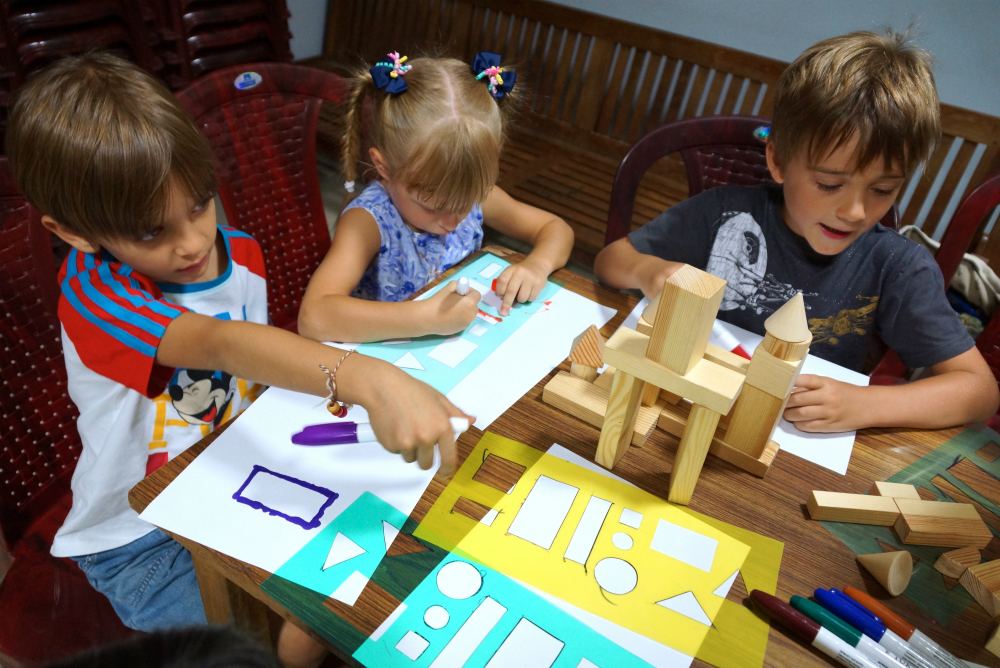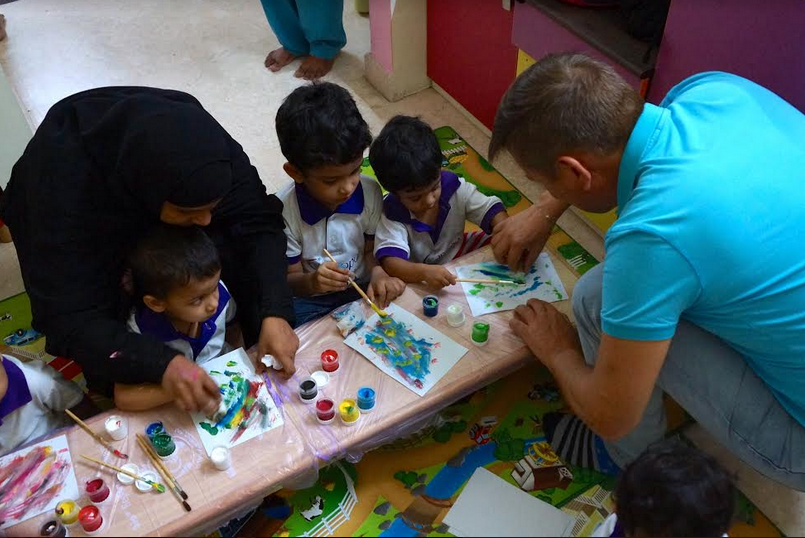In Chennai Institute "Eureka" conducted educational events: "Journey into the World of Creativity" and "A Surprising World of Discoveries".
On August 31 and September 2, 2017 in Chennai (India), the "Eureka" Institute of educational policy (Moscow), with the support of the Russian Agency "Rossotrudnichestvo", conducted educational children's and adult events: "Educational Journey into the World of Creativity", "A Surprising World of Discoveries."
Alexander Adamsky, Academic Advisor, said, "The Eureka Innovative Educational Network runs more than 1,600 schools in Russia. We try to give a chance to children so that they do not loose in a chaos, which sometimes comes with change, and find their own happy way of using new possibilities."
At the beginning of the event, children in joint activity with an adult mastered cultural means, and then joined in the activities of their own design. The peculiarity of this method is in the fundamental absence of formalized formats for such training: all tasks preschoolers solve in the game with a high degree of interest and activity.
Teachers and parents could observe the appearing educational effects: children were enthusiastically involved in activities, acted on an equal footing with adults, offered their own ways of solving problems, and controlled the results. Parents noted the ability of children to unite in groups, to act together, coordinating their plans. Teachers showed great interest in designing different environments – theatrical, cognitive, poly-lingual, artistic: the new space stimulated children's activity, initiative and independence.
Educational events allowed children to overcome difficulties encountered in the way of solving problems independently. The method "aquarium" helped teachers to see the dependence of children's immersion in the solution of the problem on the level its emotional acceptance. It was playing activities that allowed each child to assign meaningfully different cultural means: in some cases, he acted as a director, in others as an actor.
Educational events were very diverse. Two central activities: modeling and playing with the help of substitute subjects of fairy tales and designing using sensor samples were arranged with children.
The Russian folk takes, such as "Repka" and "Teremok" were modeled with children and played with the help of sensory samples.
Concerning the methods of designing with using of sensor samples ,there was chosen the technology of imagery photography of complex objects in three projections with the help of stencils and a real constructor, which contains the simplest (standard) geometric solids.
A system-forming core of activity for preschoolers is a play. Depending on the age structure of the groups of children, the type of play for unfolding in the event varied: a director's play for children 2-4 years, an imaginative play for children of 4-5 years, a role-play for children 5-6 years, a game with rules for children 6 -7 years.
The director's play was "sewn up" into educational events during the stages of children's initiative independent activity after modeling fairy tales with sensory samples. The imaginative plays were started by the story itself, played by adults at the start of the event, unfolding the technology of pair pedagogy (for example, the wizard bewitched the fairy tale that the children from Russia handed to the children from South Africa, and the children disfigured the fairy tale). The subject-role play was developed on the example of the topic of a imaginary journey on a ship or an airplane.
In the framework of educational events, theatrical activities were realized. To activate speech development in theatrical activity, various activities were used: the development of facial expressions, the training of gestures, the development of pantomimic, relaxation; games for the development of speech breathing, articulatory motor skills, phonemic perception, correct sound reproduction, coordination of movements, fine motor skills of the hand; the removal of muscle tension, the formation of a correct posture; the connection of breathing with the emotion experienced; game skills and creative independence.
The result of all the theatrical classes was a small presentation in which children in practice were able to apply the whole complex of acquired knowledge and skills. The performance has helped the children to develop improvisational abilities, intensified communicative and speech activity. In the process of staging the performance, children found themselves in imaginative and playful situations, demanding from them transformation, work of imagination. This helped children to realize the importance and interest of this particular activity.
The reflection at the end of the educational event was realized through individual and group consultations with teachers and parents based on the results of the events.
Reflection of educational events by teachers confirmed the decisive role of education, built on the choice of means of solving the problem, as well as partners in project activities. The innovative format of the educational event, proposed by Russian experts, significantly contributes to the amplification.




